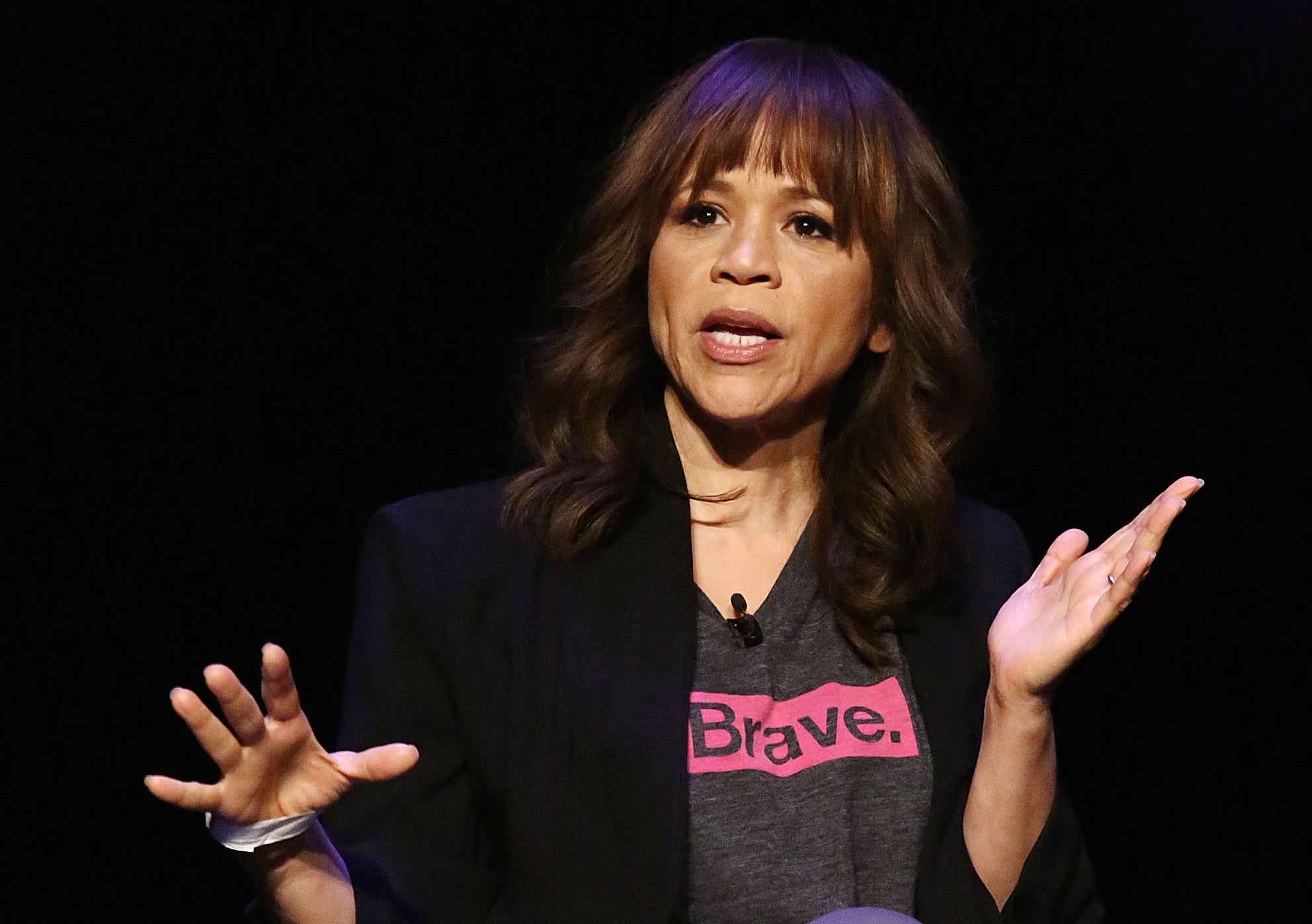Rosie Perez speaks on diversity, playing stereotypes and firing racially offensive agents in Hollywood
The Latina actress spoke during the 15th annual Tribeca Film Festival on Wednesday.

Your support helps us to tell the story
From reproductive rights to climate change to Big Tech, The Independent is on the ground when the story is developing. Whether it's investigating the financials of Elon Musk's pro-Trump PAC or producing our latest documentary, 'The A Word', which shines a light on the American women fighting for reproductive rights, we know how important it is to parse out the facts from the messaging.
At such a critical moment in US history, we need reporters on the ground. Your donation allows us to keep sending journalists to speak to both sides of the story.
The Independent is trusted by Americans across the entire political spectrum. And unlike many other quality news outlets, we choose not to lock Americans out of our reporting and analysis with paywalls. We believe quality journalism should be available to everyone, paid for by those who can afford it.
Your support makes all the difference.NEW YORK—Rosie Perez hasn’t always been offered the most exciting roles during her career. The Latina activist and actress told the Tribeca Film Festival’s Daring Women’s Summit on Wednesday the struggles she’s faced in the male-dominated entertainment industry.
Kate Ward, Bustle’s editor-in-chief, interviewed Perez and cited the Directors Guild of America Feature Film Diversity Report that found that only 6.4 percent of the 376 feature films released in 2013 and 2014 were directed by women—and only 1.3 percent were women of color.
Perez, 51, said that the statistics were daming and confusing because the majority of moviegoers are women, and most sponsers and tailoring ads to women consumers. Perez admitted that she finally began seeing better opportunities for her own carrer when she began speaking up.
"How many crackhead ho scripts are you going to send me?" Perez said. ”I don't mind being a crackhead ho but you better make me the lead.”
At one point in her career, Perez admitted that she once fired a high-profile agent for suggesting that she should get plastic surgery to pass as white. She was then struck with fear when no other agents would take her on, but after pushing for work, she eventually found work again.
Go Rosie! #rosieperez #keepingitreal #daringwomensummit #tribeca2016
A video posted by @carayeates on
Perez said that when she started out, the majority of folks in Latin Hollywood told her to appreciate her opportunities and “stop rocking the boat.” Still, Perez insisted that she was the product of the older generation’s tireless work, but refused “to be quiet” and insisted that she did “want to rock the boat.”
"It was very, very painful to see fear coming from my own people," she said. “I had to take pause and stop judging them because I did not have that burning desire to do good work, initially. Now, I see that assimilation is more prominent.”
Perez went to college to be a marine biologist and said she never intended on working in Hollywood, until she was discovered by Spike Lee.
“When I entered the entertainment world I didn’t understand the politics,” Perez said. “I understood the plight of Latinos in Hollywood, to a certain extent. I didn’t grasp how deep it was, and there were a lot of open wounds for the people who came before me.”
A photo posted by Tribeca (@tribeca) on
The "Do The Right Thing" actress also said that she expects the outcry over the lack of diversity in the Oscars will only become worse over the years.
"Hashtag the Oscars are so white, wait a few years,” Perez said. “It's not just going to be African-Americans and Latinos speaking out—it's going to be Asians, and I think they have that very right because they're not apart of the conversation right now.”